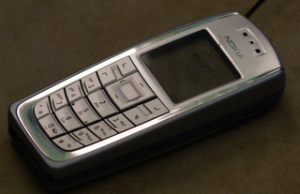According to my prejudiced view, communications technology is supposed to help people communicate. Before I start bellyaching, I must state that I think that it works on the whole. But …

Too Much Technology
Spell Checkers
Spell-checkers (or spill-chequers) have been with us over a decade. While they have their uses, people have become over-reliant upon them. There are just too many howlers out there on the Internet for me to be bothered repeating any of them here.
Grammar Checkers
Grammar checkers just make me laugh. One commercially available product claimed that one of my sentences was not a sentence. Sentences that are in the passive voice also generate warnings: if I want a sentence in the passive voice, then in the passive voice it will be put!
AutoCompletion
Texting is a wonderful technology. Autocompletion is for me a disaster: it has a success rate of less than 20% . If I leave the autocompletion facility on, it takes me longer to correct it than it does to enter the word properly in the first place. (English can be a wonderfully precise language, and I wish to use those words that exactly reflect my meaning, not some similar word that totally lacks the nuances that I intend. Me? Fussy? You bet!) Whenever I buy a new phone, the first thing I do is turn off autocompletion.
But What to Do About It?
As trainers and educators, it is within our power to influence those around us in these matters.
I have seen lots of others thumping the tub about not being over-reliant on spell checkers. Some people absorb the message, others seem resistant, perhaps for reasons intellectual incapacity (which is forgivable – we are not all uniformly intelligent, thank goodness) or mental laziness (which makes me cross). If you have any bright ideas about how tackle the laziness angle, please post them.
Grammar checkers at least have the facility to disable some or all of their features. I run with mine turned off. That sentence may be a fragment, but if I am writing a piece of non-factual prose, then a fragment might be exactly what is called for.
Autocompletion is a tub that I think needs to be thumped, and load and hard.
Texting is an evolutionary branch of English that seems here to stay: it is just another dialect in my opinion. There is an interesting article on how this is happening. However, overly terse texting has an adverse effect on communication: see http://www.abc.net.au/news/stories/2008/12/04/2438107.htm for a comment on how long it takes recipients to read such messages.
My thanks go to Sue Waters for getting into this way of communicating, and to Lisa Dick for helping me to bring this issue to the front of my grey cell.
